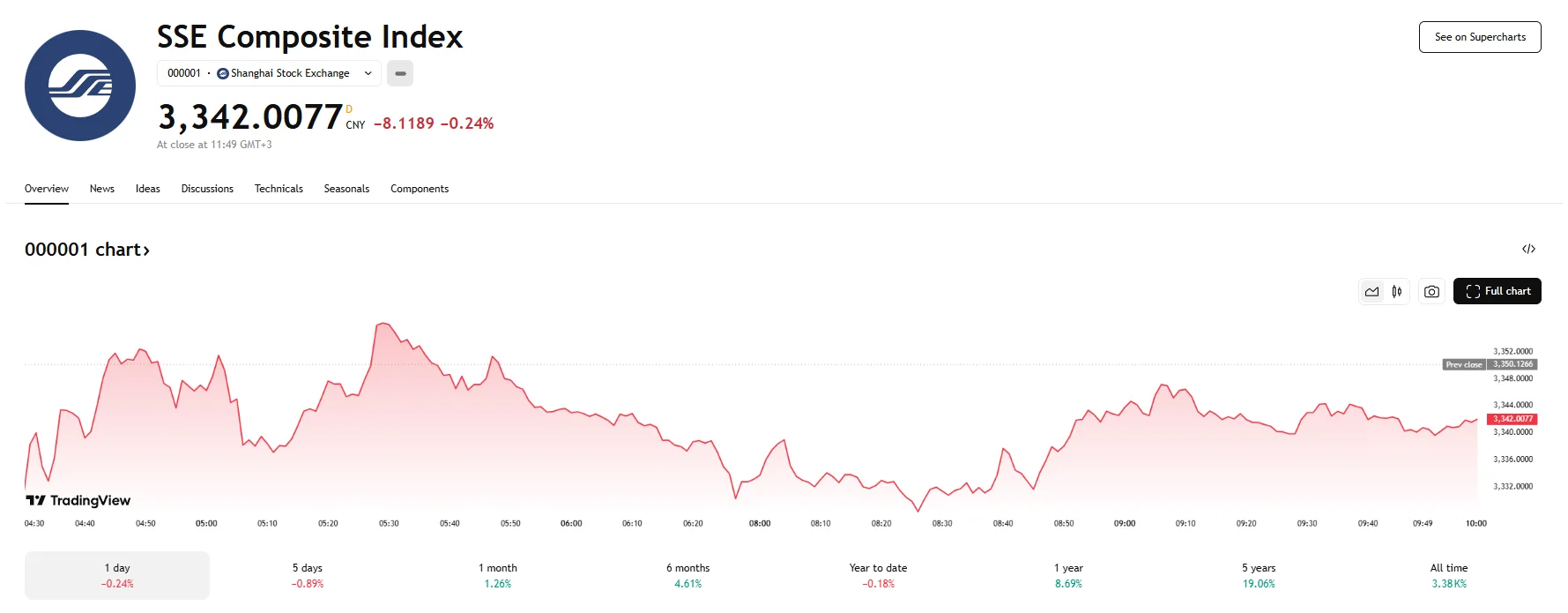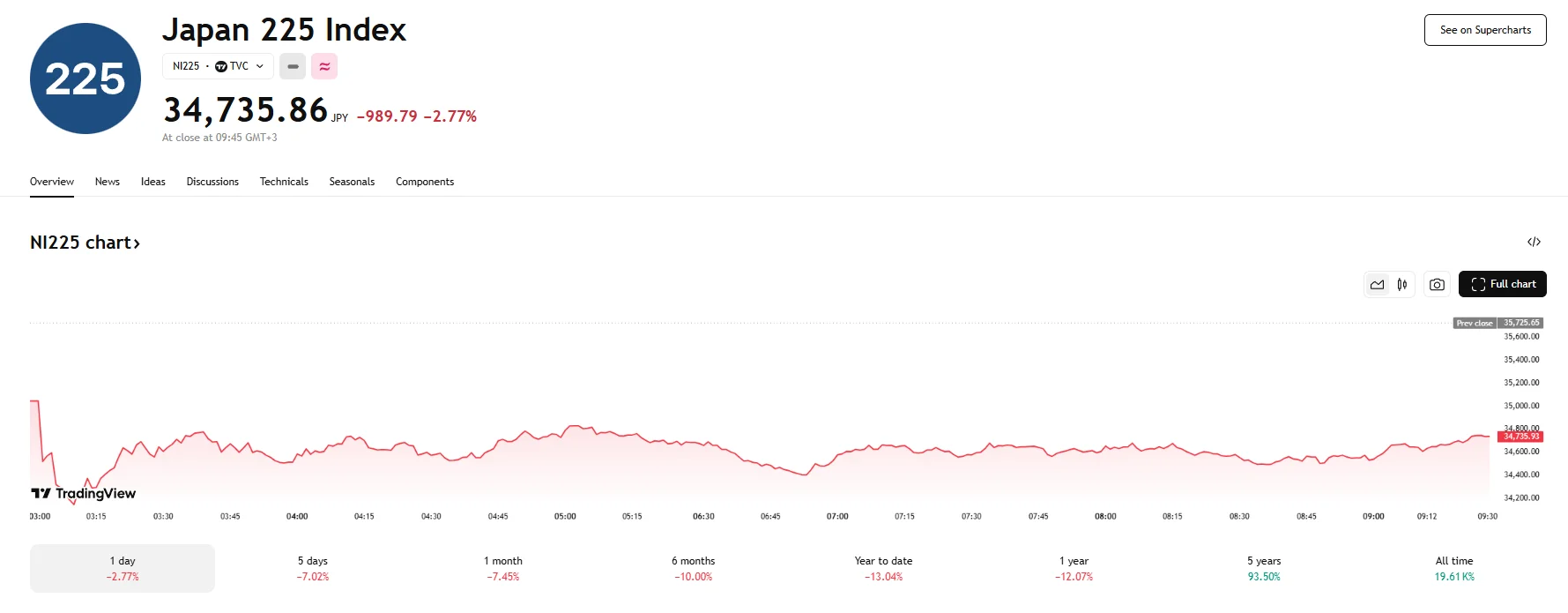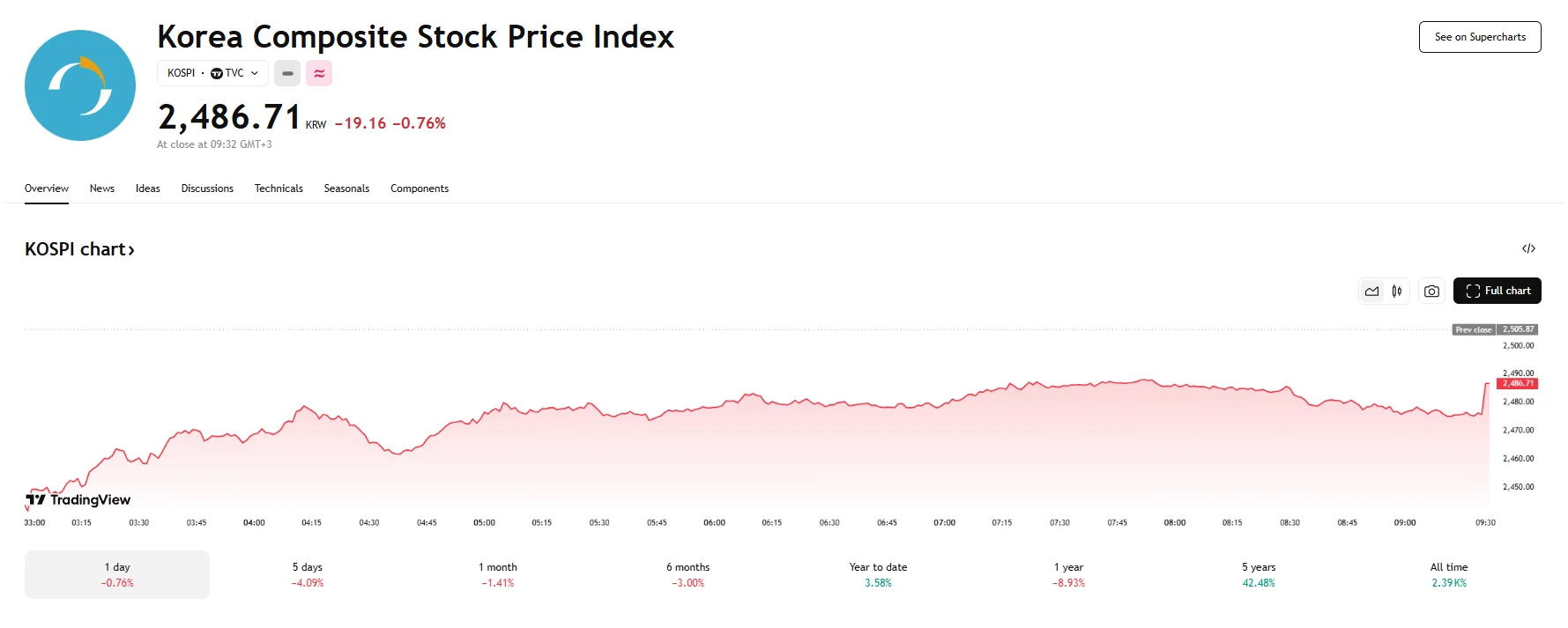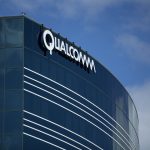Key moments
- Asian markets fell in the wake of President Donald Trump’s tariff announcements. The Shanghai Composite (SSE) experienced a drop of 0.25%. The Hang Seng index also slid by 1.52%.
- The Nikkei 225 Index dipped by 2.77%.
- South Korea’s KOSPI registered a 0.76% loss.
Asian Markets Plunge Amid Tariff Tensions
President Trump’s announcement of extensive tariff policies on Wednesday triggered a significant downturn in Asian markets, reflecting widespread investor concerns about escalating trade tensions. The core of the market turmoil stemmed from Trump’s imposition of a 10% global tariff rate on imports, with particularly severe levies aimed at China. The cumulative tariffs on Chinese goods now stand at 54%, following the addition of a 34% tariff announced on Wednesday. As a result, the Chinese SSE Composite Index fell 0.25%, while Hong Kong’s Hang Seng also experienced a decline of 1.52%.

China’s commerce ministry responded by demanding that Washington cancel the tariffs, stating that “there is no winner in a trade war” and put an emphasis on the tariffs’ detrimental impact on global economic development. Furthermore, Beijing has pledged to implement countermeasures. According to Wang Wen, dean of the Chongyang Institute for Financial Studies at Renmin University, China could respond with its own tariff policies, impose restrictions on rare earth mineral exports, or implement currency devaluation measures.
Japan, meanwhile, faces tariffs of 24%. Prime Minister Shigeru Ishiba questioned the rationale behind these global tariffs, given Japan’s significant contributions to the U.S. economy. Yoji Muto, currently serving as Japan’s Minister of Economy, Trade and Industry, deemed the tariffs “regrettable” and highlighted Japan’s ongoing efforts to negotiate with the White House. The market’s response to the tariffs saw the Nikkei 225 Index sliding 2.77%.

South Korea, whose KOSPI index fell 0.76% on Thursday, was hit with a 25% tariff rate. Acting President Han Duck-soo emphasized the gravity of the situation, stating that the South Korean government would pour all of its efforts into overcoming the crisis. South Korean officials are focused on minimizing the impact of the tariffs, particularly on key export sectors like the automotive industry. The imposition of these tariffs has also raised concerns about the future of the Korea-U.S. Free Trade Agreement, with analysts suggesting that Trump’s actions have effectively nullified the pact.






